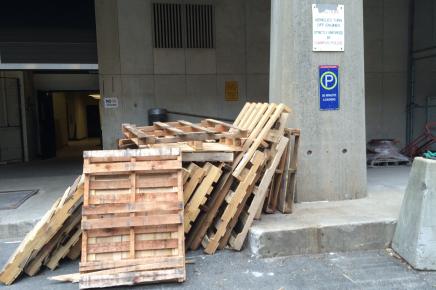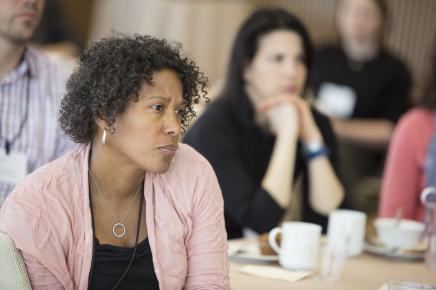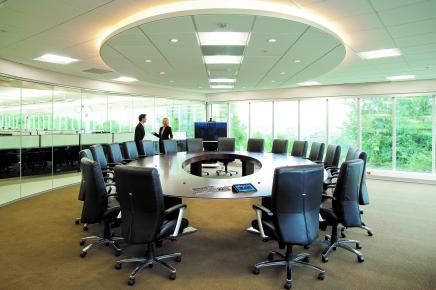Through a partnership with the Environmental Solutions Initiative, this collaborative analysis asks the question: How can MIT optimize material flows and reduce its negative impacts through innovations in purchasing, consumption and disposal processes?

Laboratory equipment and computers, office supplies and campus vehicles, food and construction materials are just a few examples of the wide range of goods and services that MIT needs to carry out its educational mission. Each product we purchase and bring into campus has far-reaching implications that extend beyond the Institute’s borders, from the companies and economies that our purchases support to the environmental and human health chain reaction set into motion by their creation, use, and disposal.
How might we promote circular material flows where we leverage our purchasing power to support products, suppliers, and manufacturers who are using recycled materials as inputs and re-directing their outputs towards inputs for other processes? If we are thoughtful about our supplier partnerships and product selections, if we consider the lifecycle of the products we are purchasing, and if we collaborate on the development of creative purchasing solutions, together we can leverage MIT’s purchasing power to drive positive impacts in the world, strengthen communities, and serve as a model for others.
Strategies
Here are just a few of the procurement strategies we’re exploring:
-
promote use of re-usable goods in place of single-use items
-
develop a visible and accessible online re-use marketplace for surplus materials
-
seek partnerships with our suppliers to promote environmentally preferred products and alternatives
-
develop guidelines for purchasing materials that are made from renewable resources
-
evaluate and factor in the lifecycle of materials during the purchasing process
-
purchase materials that are less toxic and made from renewable resources, contributing to a safer workplace
-
collaborate across departments to purchase in bulk, reducing energy use in the delivery of goods
-
support local economies and women- and minority-owned businesses
MITOS is currently working collaboratively to design out waste and drive circular economies via operations, education, research, and innovation in the following areas.
In November 2015, the MIT Office of Sustainability released the first set of recommendations, generated by the 2014-2015 Sustainability Working Groups, which address the following topics: building design and construction; stormwater and land management; materials management; and green labs.
This Certification helps guide planners toward making smart choices about food, energy, transportation, and materials when planning an event at MIT.
MITOS is gathering a preliminary picture of MIT’s Scope 3, or indirect, GHG emissions in order to inform MIT’s total greenhouse gas emissions activities (Scopes 1 + 2 + 3) and explore where strategic opportunities may exist to reduce emissions.
Awarded “Preferred Caterer” status to local vendors based on criteria that includes the sustainability of the caterer’s practices.
Channels MIT’s unique culture to create solutions to environmental challenges through activities in education, research, and convening.
The Division of Student Life including its dining and housing offices are key partners in helping to understand and envision what sustainable food systems might look like on campus.






